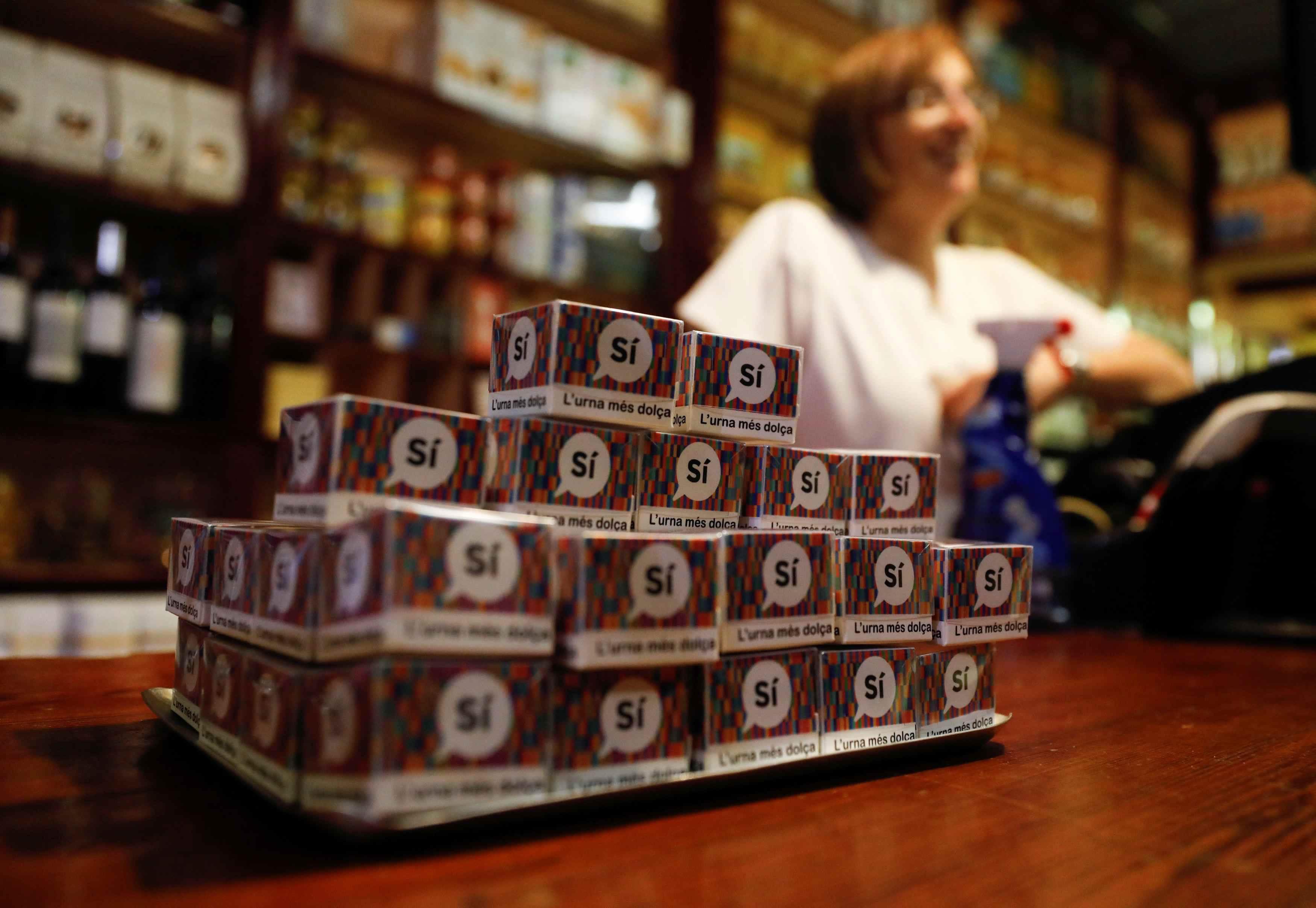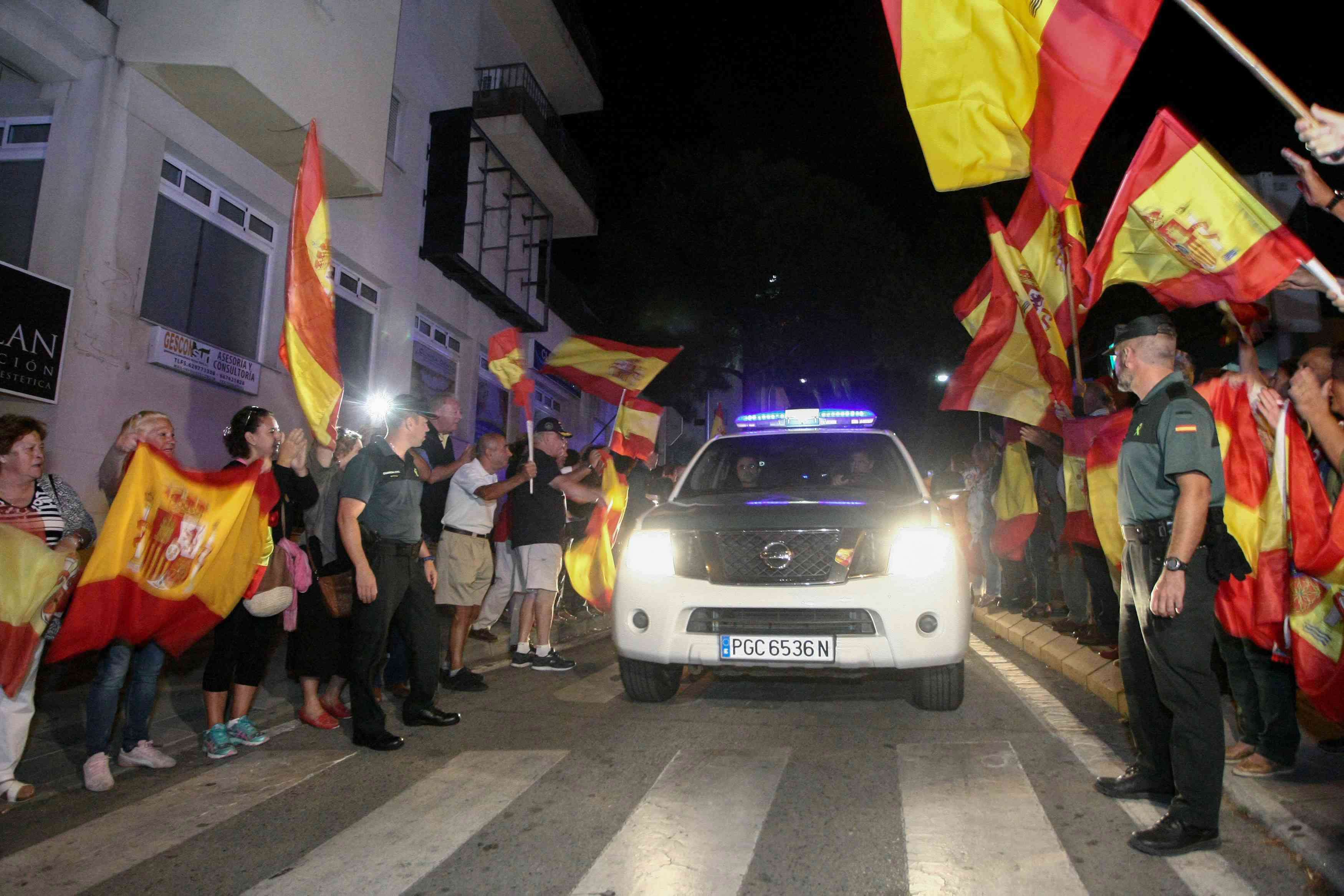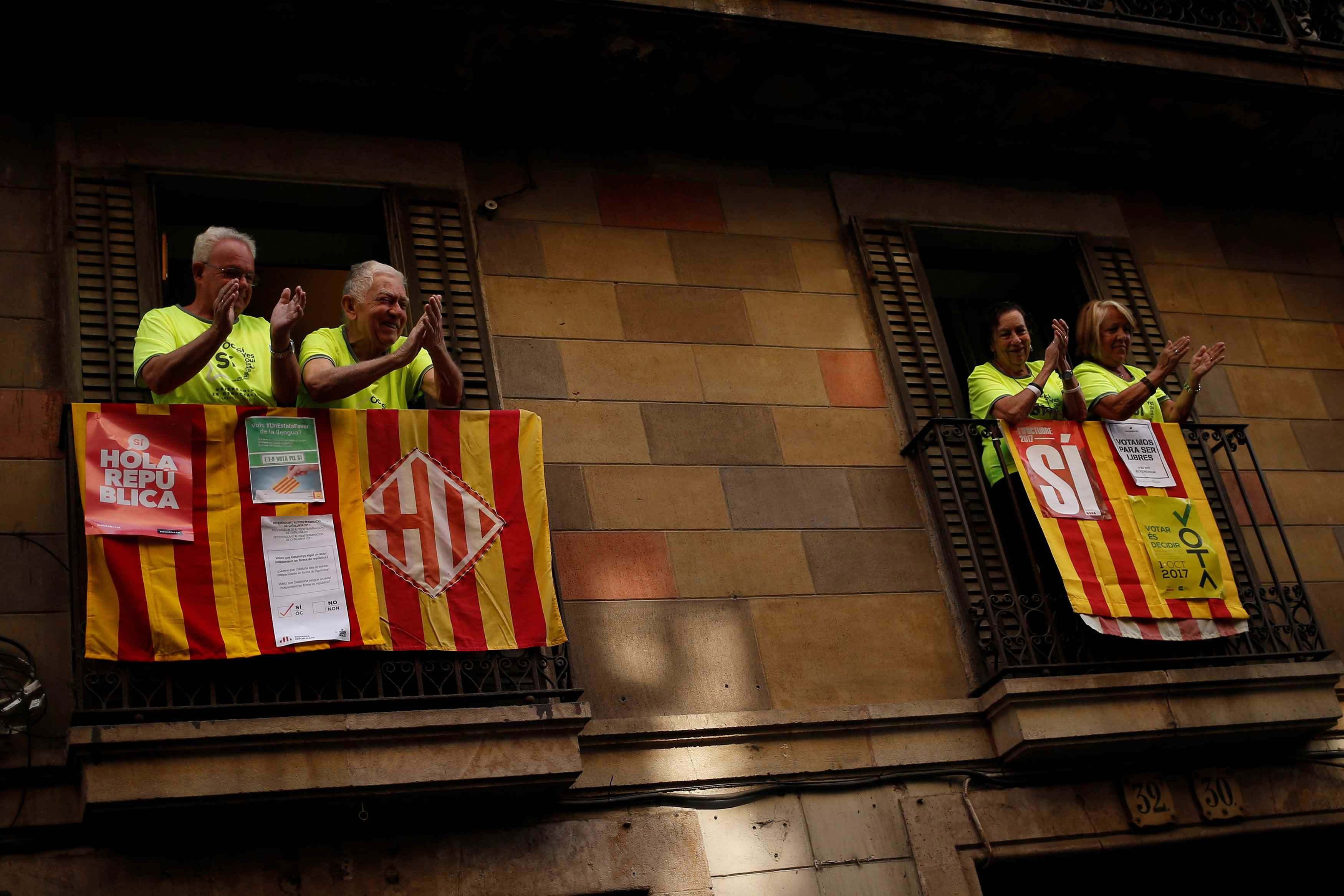The recent demand for Catalan independence is one of the issues besetting Europe, casting a gloom on the continent. Separatist sentiment has been at its worse in Spain but finally ended in a compromise, with Catalonia's president postponing a formal declaration of independence on Tuesday.
Catalonia is at the crossroads of the economy and politics, making it hard to wriggle out of a system through a referendum. Its bid to secede from Spain has left a painful scar.

Sweets packaged in small boxes labeled with the "Yes" and the pro-independence campaign motto reading "The sweetest ballot box" are seen at the Puigdemont family bakery a day before the independence referendum in the Catalan town of Amer, Spain, September 30, 2017. /Reuters Photo
Sweets packaged in small boxes labeled with the "Yes" and the pro-independence campaign motto reading "The sweetest ballot box" are seen at the Puigdemont family bakery a day before the independence referendum in the Catalan town of Amer, Spain, September 30, 2017. /Reuters Photo
The nation state is the most modern political institution. It is easy to obtain collective loyalty, protect the weak, and allocate resources fairly. Spain is a constitutional monarchy and Catalonia is an autonomous community. The constitution guarantees the autonomy of the ethnic areas. There are two different systems of taxation for the central government and regional ones. Catalonia has its own language and culture and is led by a government eager to achieve independence. With 16 percent of the population of Spain, Catalonia contributes 20 percent of Spain's output and produces 25 percent of the country's exports. Hence, losing Catalonia is unimaginable for Spain.
The turnout of the independence referendum on October 1 was 43 percent, but 90 percent (more than 2 million people) voted for Catalonia to secede. The rest of Spain and Catalonia pull different ways because of disparate political systems, demand for economic and social reforms and the conflict of cultural identities. Catalans felt deprived when the benefits of globalization accrued inside Spain. A feeling of deprivation and isolation propelled in the direction of secession.

People wave Spanish flags and cheer as Spanish Civil Guards depart their command center en route to Catalonia, ahead of the banned October 1 independence referendum in Algeciras, Spain, September 26, 2017. /Reuters Photo
People wave Spanish flags and cheer as Spanish Civil Guards depart their command center en route to Catalonia, ahead of the banned October 1 independence referendum in Algeciras, Spain, September 26, 2017. /Reuters Photo
To some degree, the integration of Europe intensifies the desire for independence. Integration not only strengthens supranational institutions, but also highlights the effects of local governance and regional autonomy. It's consistent with the European advocacy of multiculturalism, and in line with decentralization under the European pluralistic structure.
At the beginning of integration, it was a way to rescue the nation state. It helped the nation states recover from World War II quickly and achieve economic development and political stability. But as populism exists with a feeling of anti-globalization, the European Union becomes a part of the problem and not the solution.
In the EU member states which have been enormously influenced by the European sovereign debt crisis, there are problems in economic development and benefits of allocation. The bloc is found wanting a sufficient number of political systems and institutions to deal with people's frustration and deprivation.

People wave Spanish flags and cheer as Spanish Civil Guards depart their command center en route to Catalonia where they are being sent to reinforce, ahead of the banned October 1 independence referendum, in Algeciras, Spain, September 26, 2017. /Reuters Photo
People wave Spanish flags and cheer as Spanish Civil Guards depart their command center en route to Catalonia where they are being sent to reinforce, ahead of the banned October 1 independence referendum, in Algeciras, Spain, September 26, 2017. /Reuters Photo
As democracy in Spain is imperfect, it leads to excessive political participation and the failure of political institutions. The issue is under the glare when the economy falters.
At the level of the political party, it reflects populism. At the federal level between the center and region, it reflects the division of the regions.
No side will gain from the separation of Catalonia. Long-term uncertainty may affect decision-making and investments.
Recently, some corporate headquarters located in Catalonia prepared to move, which may hit tax revenue. The EU and other member states have been worried about the spillover effect of the referendum crisis and appealed for talks to find a solution within constitutional limits.
Catalonia doesn't have the advantage in this game. Although the independence of Catalonia means it will have more power to control its economy and politics, the region will not be permitted into the EU, the European single market, or the Schengen Area. It can't gain autonomy, legal validity, international recognition and development space as the EU area won't recognize it.
Political stability and power virtually guarantee national unity. Development and political stability will give a sense of belonging and identity to the nation the provinces. If political and social problems cannot be solved, especially the problems of slow economic development and high youth unemployment, Catalonia will reverting to the demand for independence. This may change Spanish and European politics.
(This piece was originally published on Global Times. The author is an associate research fellow at the Institute of European Studies, Chinese Academy of Social Sciences. The article reflects the author's opinion, and not necessarily the views of CGTN.)
Source(s): Global Times





